Animals
-
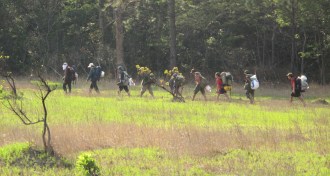 Animals
Animals‘The Last Unicorn’ takes readers on quest to see a saola
Nature writer William deBuys introduces readers to the enigmatic saola of Southeast Asia.
-
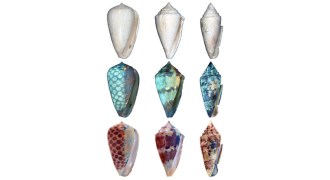 Oceans
OceansUV light reveals hidden patterns on seashell fossils
Under UV light, fossil seashell color patterns glow, a researcher finds.
-
 Animals
AnimalsFossilized seashells’ true colors revealed
To the naked eye, fossilized seashells lack the colorful patterns of their living counterparts. But ultraviolet light can reveal some of their unique hues.
-
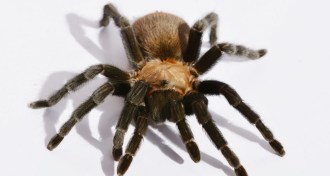 Animals
AnimalsHeat makes scuttling tarantulas less coordinated
On hot days, tarantula run faster, but their may be harder to bend and flex at high speeds, researchers find.
-
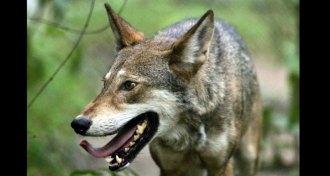 Animals
AnimalsHow human activities may be creating coywolves
Endangered red wolves will mate with coyotes when their partners are killed, which often happens because of human activities, a new study finds.
-
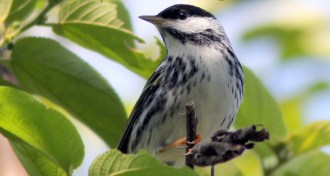 Animals
AnimalsSongbird crosses the Atlantic in a nonstop flight
Using light-sensing geolocators, researchers confirm an iconic songbird’s impressive transoceanic migration.
-
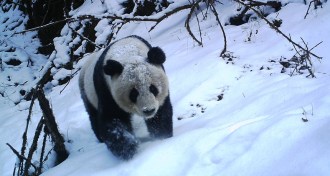 Animals
AnimalsPanda stalking reveals panda hangouts
Scientists used GPS trackers to learn about the giant panda lifestyle.
-
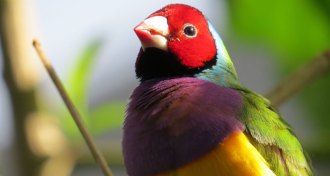 Life
LifeBright bird plumage resulted from natural, sexual selection
Darwin hypothesized that bird color differences resulted from sexual selection. Wallace disagreed. A study shows that both were right after all.
-
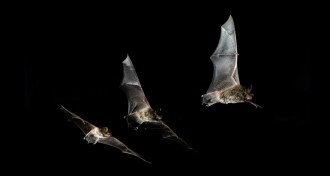 Animals
AnimalsFor bats, simple traffic patterns limit collisions
Humans aren’t the only ones who follow traffic rules. Bats do it too, researchers report.
-
 Life
LifeNo-fishing scheme in Great Barrier Reef succeeds with valuable fishes
Coral trout are thriving in marine protected areas in the Great Barrier Reef, but the no-take zones are having a smaller effect on other reef residents, a new 10-year report card shows.
By Susan Milius -
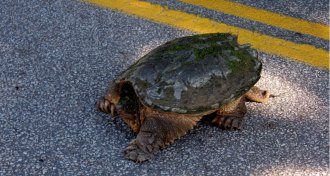 Animals
Animals‘If you build it they will come’ fails for turtle crossings
Turtles and snakes barely used an ecopassage built to make their movements safer. Scientists blame poor fencing that failed to keep them off the roadway.
-
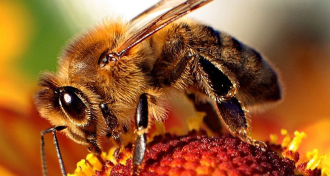 Environment
EnvironmentManganese turns honeybees into bumbling foragers
Ingesting low doses of the heavy metal manganese disrupts honeybee foraging, a new experiment suggests.